News written by Rich Fiscus
Written by Rich Fiscus @ 14 Oct 2013 8:12
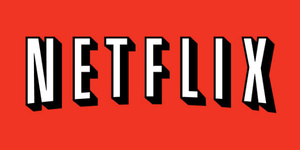 Cable television operators in the US find themselves in an increasingly difficult position with respect to Netflix streaming video. On one hand it is the chief competition for their legacy pay TV business. On the other hand it arguably the biggest driver of increasingly higher speed Internet subscriptions, accounting for around a third of US Internet traffic.
Cable television operators in the US find themselves in an increasingly difficult position with respect to Netflix streaming video. On one hand it is the chief competition for their legacy pay TV business. On the other hand it arguably the biggest driver of increasingly higher speed Internet subscriptions, accounting for around a third of US Internet traffic.
Netflix has already established partnerships with Virgin Media in the UK and Com Hem in Sweden. Among the terms of these deals each company provides a Netflix TiVo app for their customers. At a Goldman Sachs conference last month Netflix CFO David Wells also expressed interest in forming similar partnerships with US pay TV providers.
Now the Wall Street Journal is reporting negotiations with multiple cable companies (paywalled content) including Comcast and Suddenlink Communications to establish those partnerships. According to their sources there are still significant issues to be resolved in negotiations between the parties. Perhaps the most important, at least for consumers, is the Netflix demand to integrate technology to improve streaming quality into broadband provider networks. Presumably this would involve some kind of caching on ISP networks which would allow both higher bitrate streams and lower bandwidth utilization by Netflix servers.
Read more...
Written by Rich Fiscus @ 11 Dec 2012 11:57
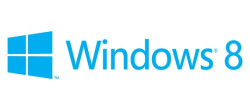 A major focus of Windows 8 is convincing users to login using a Microsoft account (formerly Live ID) rather than a traditional local account. A Microsoft account is a sort of portal to access various cloud services including 25GB of free storage via SkyDrive which is accessible directly through various apps in the new modern UI.
A major focus of Windows 8 is convincing users to login using a Microsoft account (formerly Live ID) rather than a traditional local account. A Microsoft account is a sort of portal to access various cloud services including 25GB of free storage via SkyDrive which is accessible directly through various apps in the new modern UI.
While it certainly makes some things much more convenient, it also introduces new security concerns which don't apply to local user accounts. Some are specific to Microsoft's services while others are simply inherent risks which go along with integrating the cloud into your daily computer use.
Some of these issues also apply to Windows 8 workstations in enterprise environments. Although Microsoft account logins don't replace the standard active directory (Windows domain) login system, you can (if your employer allows it) connect a Microsoft account to your regular Windows login. This shifts some of the security burden to your employer's IT department there may still be some measures you should take for yourself.
In this article we will examine 5 things you can do to avoid potential security problems when using your Microsoft account to login to Windows 8. That doesn't mean I recommend doing so. In fact I use a local account almost exclusively, although I do have a Microsoft account. If using this new login method doesn't address some need you
Featured Windows 8 articles
have, by all means skip it entirely. But if you do decide to login this way here are some things you should think about.
Read more...
Written by Rich Fiscus @ 04 Dec 2012 11:00
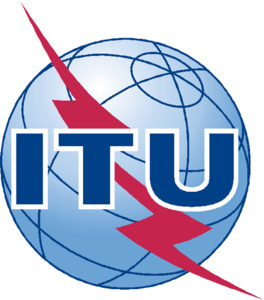 You are likely already aware of the World Conference on International Telecommunications (WCIT) which opened in Dubai on Monday. This two week conference is where a review of the International Telecommunications Rules established by a 1988 treaty is being conducted by representatives of the 178 International Telecommunications Union (ITU) members who are party to it.
You are likely already aware of the World Conference on International Telecommunications (WCIT) which opened in Dubai on Monday. This two week conference is where a review of the International Telecommunications Rules established by a 1988 treaty is being conducted by representatives of the 178 International Telecommunications Union (ITU) members who are party to it.
The ITU, originally formed as an industry association for telegraph operators in the 1800s, has expanded over the years to become a United Nations agency with a membership consisting of nearly 200 countries and more than 700 private organizations. Although only states have votes on the adoption of ITU policy and rules, all members may propose changes.
There have been numerous accusations about secret agendas behind the most significant changes proposed to ITU-T rules which govern wireline communications across the legacy PSTN (Public Switched Telephone Network). Despite the fact nearly all such arguments being charged with political rhetoric and grandstanding, most of them are sadly very accurate. Rather than trying to summarize them all here I'm going to highlight the worst of the worst and provide links to more detailed information on each.
Read more...
Written by Rich Fiscus @ 10 Nov 2012 1:11
 So you've decided to use Windows 8. Maybe you wanted to take advantage of the unusually low upgrade price, maybe you just bought a new computer, or perhaps you're just trying it out to see if you like it. Whatever your reasons there's a very good chance either you have already added a Start menu of some kind, are considering adding a Start menu, or are in the process of evaluating your options for adding a Start menu.
So you've decided to use Windows 8. Maybe you wanted to take advantage of the unusually low upgrade price, maybe you just bought a new computer, or perhaps you're just trying it out to see if you like it. Whatever your reasons there's a very good chance either you have already added a Start menu of some kind, are considering adding a Start menu, or are in the process of evaluating your options for adding a Start menu.
Strictly speaking a Start menu isn't necessary in Windows 8. Everything that was available on the Start menu in Windows 7 can be found elsewhere in Windows 8. Sometimes it's even much more convenient aside from a moderate learning curve. On the other hand even people (like me) who already saw the Start menu as dated & in need of an overhaul may find Microsoft's alternatives unacceptably weak & poorly designed. In fact while Microsoft changes the Start menu with each new version of Windows if anything it seems to have gone downhill in Windows 7 before disappearing entirely in Windows 8.
For whatever weaknesses it may have, the Start menu has been arguably one of just three or four elements which have defined the Windows desktop interface since 1995. In fact you can usually identify the exact version of Windows a computer is running by simply examining the Start menu's appearance. For more than a decade it expanded both figuratively and literally to the point where you could access nearly every setting or feature in Windows from its confines. That expansion had all but stopped in Windows 7, and in fact some people would argue that Start menu was a step backwards.
Read more...
Written by Rich Fiscus @ 02 Nov 2012 2:55
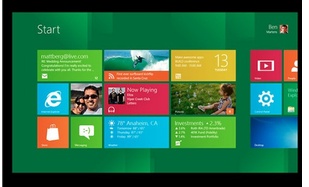 You may not realize that Microsoft has actually been a proponent of the tablet PC for more than a decade. In fact as early as 2002 they were releasing a tablet PC version of Windows. For numerous reasons previous generations of the Windows tablet PC simply didn't work for most people. The interface wasn't particularly tablet friendly, the operating system was too power hungry, and PC hardware really wasn't suitable in a variety of ways.
You may not realize that Microsoft has actually been a proponent of the tablet PC for more than a decade. In fact as early as 2002 they were releasing a tablet PC version of Windows. For numerous reasons previous generations of the Windows tablet PC simply didn't work for most people. The interface wasn't particularly tablet friendly, the operating system was too power hungry, and PC hardware really wasn't suitable in a variety of ways.
The new Windows 8 tablets and hybrids really do address almost every problem with those previous attempts. A large part of that is the new modern UI (aka the UI previously known as Metro) which uses tiles which roughly combine the functionality of both regular icon shortcuts and widgets found in the Android interface. But because Windows 8 is still a PC operating system it still has all the features you typically associate with Windows, most of which were typically accessed through the Start menu.
There again Microsoft has done a pretty good job of making those features and settings accessible via a tablet's touch interface. Some of them, like program shortcuts, are simply added to the Start screen which is the modern UI equivalent to the desktop. Others are accessed using gestures which basically means swiping from the right side of the screen toward the middle to bring up the Charms bar.
Read more...
Written by Rich Fiscus @ 18 Oct 2012 1:35
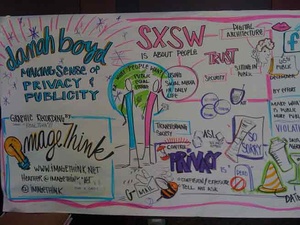 Microsoft is a company very much used to the market changing around them rather than the other way around. As happens so often for companies in that position, their executives didn't realize they were out of step with the market until they saw a major competitor (Apple in this case) leading the market in another direction entirely. Like most companies finding themselves in that position they immediately dedicated themselves to major changes in their product line.
Microsoft is a company very much used to the market changing around them rather than the other way around. As happens so often for companies in that position, their executives didn't realize they were out of step with the market until they saw a major competitor (Apple in this case) leading the market in another direction entirely. Like most companies finding themselves in that position they immediately dedicated themselves to major changes in their product line.
But also typical for such companies is that their changes are mostly superficial when the real problem is the fundamental understanding of the market itself. For all the obvious changes in Windows 8, Microsoft still hasn't learned some of the most important lessons about why they were so wrong or how to correct their course in the long term.
1. Windows and Office are not an ecosystem
Steve Ballmer has made it clear that he believes in the "Windows experience" but it would be more accurate to say he's selling the Microsoft experience. It is Microsoft as the arbiter of app availability and provider of the foundation for all software development in the form of the Windows Store and Windows Runtime API (WinRT) respectively. While Windows itself is certainly
a foundation for modern Windows programs, it is far from
the foundation.
Read more...
Written by Rich Fiscus @ 15 Oct 2012 12:44
 Late last week I announced a new guide for preparing Blu-ray assets to be used in a new series of AfterDawn guides for authoring Blu-ray discs. Today I'm pleased to announce that the first of those guides is finally available.
Late last week I announced a new guide for preparing Blu-ray assets to be used in a new series of AfterDawn guides for authoring Blu-ray discs. Today I'm pleased to announce that the first of those guides is finally available.
EasyBD is a line of Blu-ray authoring software sold by DVD-Logic. It features a simple and straight forward interface which makes authoring simple discs as easy as it can possibly be while also supporting almost any Blu-ray feature you can think of.
In the first lesson of our tutorial for authoring Blu-ray discs with EasyBD you will learn the basics of the interface by creating a simple disc with a single title featuring one video stream, one audio stream, one subtitle stream, and a handful of chapters. This lesson lays the framework for future guides which will cover more advanced features like additional audio and subtitle streams, multiple titles, and menus.
Written by Rich Fiscus @ 14 Oct 2012 10:45
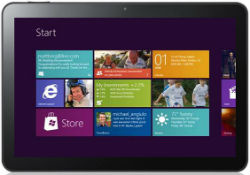 In last week's installment of our series on mobile devices and the companies who make them looked at Microsoft's efforts to launch an ARM-powered Windows 8 platform (Windows RT) and its synergy with Windows Phone 8. Of course those are only two pieces of the Windows 8 puzzle. The other piece, and arguably the biggest one financially, is the standard x86 version of the OS; the one officially called Windows 8.
In last week's installment of our series on mobile devices and the companies who make them looked at Microsoft's efforts to launch an ARM-powered Windows 8 platform (Windows RT) and its synergy with Windows Phone 8. Of course those are only two pieces of the Windows 8 puzzle. The other piece, and arguably the biggest one financially, is the standard x86 version of the OS; the one officially called Windows 8.
At first glance the decision to support ARM processors in Windows 8 seemed to be all about compatibility with the only hardware capable of the extended battery life necessary for a modern tablet. That's certainly how Microsoft described it from the beginning. However the biggest differences between Windows 8 for ARM (Windows RT) and the standard version of Windows 8 actually ended up being an unprecedented level of control and lack of user options.
Unprecedented for Windows anyway. It's actually almost identical to the type of control Microft built into Windows Phone 7 where a walled garden reminiscent of Apple's tightly controlled app environment is standard. It's pretty clear that Microsoft's goal with Windows RT, which also happens to be essentially the tablet version of Winodws Phone 8, restricting tablet users to installing apps via Microsoft's official app store.
Read more...
Written by Rich Fiscus @ 10 Oct 2012 6:48
 Several months ago I contacted Valery Koval, the owner of a small software company called DVD-Logic. I was hoping to get extended access to one of his company's programs so I could write a guide for using it. Plus I really wanted an excuse to play around with it. DVD-Logic sells an entire line of very impressive Blu-ray authoring software, including two different menu creation programs. In fact one of those programs was what prompted me to get in touch with him.
Several months ago I contacted Valery Koval, the owner of a small software company called DVD-Logic. I was hoping to get extended access to one of his company's programs so I could write a guide for using it. Plus I really wanted an excuse to play around with it. DVD-Logic sells an entire line of very impressive Blu-ray authoring software, including two different menu creation programs. In fact one of those programs was what prompted me to get in touch with him.
Instead of simply granting my request for an extended license to Quick BD Menu, the program I had inquired about, he countered with a much more generous offer. He suggested that I might prefer to write some guides for what at the time was essentially the full range of DVD-Logic's Blu-ray authoring sotware and gave me a sort of extended trial license so I could continue using it far beyond the normal 21 day trial period.
That was a little more than nine months ago and I've spent much of the intervening time learning not just how to use EasyBD, Quick BD Menu, and IGEditor, but also about Blu-ray itself. One of the first things I realized when I finally decided I was ready to get to work on the tutorials for those programs I will begin unleashing on the public later today was that it was too complex a subject to expect anyone to follow along if I began in the middle - yet that's certainly what it would mean to just jump into the authoring process.
Read more...
Written by Rich Fiscus @ 05 Oct 2012 1:39
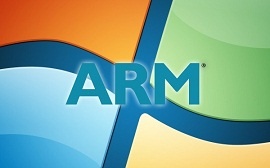 In the first two installments in this series examining the mobile device market we have looked at Apple and Amazon. This time around we'll be talking about a company who currently only competes in the smartphone market but whose tablets are perhaps the most anticipated product to come along since the original iPad. That company is Microsoft and obviously the tablets are the numerous models which will launch with (and following) Windows 8.
In the first two installments in this series examining the mobile device market we have looked at Apple and Amazon. This time around we'll be talking about a company who currently only competes in the smartphone market but whose tablets are perhaps the most anticipated product to come along since the original iPad. That company is Microsoft and obviously the tablets are the numerous models which will launch with (and following) Windows 8.
As the dominant operating system in the PC market, Windows revenue has obviously dropped with the platform as a whole in decline. Meanwhile Microsoft has watched as Apple has not just reinvented the personal computing market with the iPad, but also managed to maximize profit margin at the same time. Beginning with Windows Phone 7 and continuing with the Windows 8 family of operating systems Microsoft appears to be betting on combining their established licensing model and Apple-like levels of control to regain their OS dominance.
Continuing a strategy first introduced with Windows Phone 7, Windows 8 and its derivatives (Windows RT and Windows Phone 8) are designed first and foremost as clients for Microsoft's software and media distribution efforts. It's not a coincidence that Windows Phone and Windows RT (their ARM-based Windows 8 tablet platform) are configured to prevent users from installing unapproved software and despite their insistence to the contrary the reason isn't security. It's the opportunity to make themselves a gatekeeper for apps and media and cut themselves in on any profits from selling those commodities.
Read more...
Written by Rich Fiscus @ 22 Sep 2012 9:40
 In the first installment of our look at the major mobile device players we dissected Apple, who were really the first company to create a combined device/content store ecosystem. Already a growing force in the content market, last year Amazon entered the market with the Kindle Fire, a generally unimpressive piece of hardware that was mostly a BlackBerry Playbook with the serial numbers filed off.
In the first installment of our look at the major mobile device players we dissected Apple, who were really the first company to create a combined device/content store ecosystem. Already a growing force in the content market, last year Amazon entered the market with the Kindle Fire, a generally unimpressive piece of hardware that was mostly a BlackBerry Playbook with the serial numbers filed off.
At first glance Amazon's tablet business appears very similar to Apple's. Apple is the leader in music sales and Amazon is the top ebook seller. However their business models are actually polar opposites. The iTunes store is a side business for Apple, designed to help sell hardware. Amazon, on the other hand, sells tablets as an incentive to purchase content. Apple's profit margins are the highest of any device vendor. Amazon aims for volume at the expense of profit per unit.
For consumers this is a mixed bag. Amazon's music store is almost inconsequential in sales terms compared to iTunes but the selection is still good and the prices are competitive. Relative to Netflix their streaming video service, Amazon Prime, is similarly second string. Netflix has a distinct advantage in selection but that's also reflected in the price. In case it matters to you, and that would put you in the minority, Amazon also has VOD and (DRM-infested) video purchases.
Read more...
Written by Rich Fiscus @ 21 Sep 2012 7:58
 The end of the year is drawing closer, accompanied as always by the Christmas shopping season. In addition to the millions of tablets and smartphones being sold this also means a bumper crop of the latest devices from the biggest names in mobile computing.
The end of the year is drawing closer, accompanied as always by the Christmas shopping season. In addition to the millions of tablets and smartphones being sold this also means a bumper crop of the latest devices from the biggest names in mobile computing.
The iPhone 5 has already seen record preorders and Amazon began shipping two new 7-inch tablets last week with the 8.9-inch Kindle Fire HD scheduled to leave the warehouse at the end of November. In addition to those offerings there is already a successful 7-inch tablet from Google and Asus, the Nexus 7. And of course the much hyped redesigned Windows 8, on both ARM and x86 powered tablets, is coming next month.
For a consumer in search of mobile computing Nirvana this may be the closest thing to paradise. For others the confusing array of offerings is perhaps more like purgatory. Most of them are similar from a technical perspective but they actually offer significantly different experiences. In fact it's fair to say that what consumers are looking for (and at) isn't the silicon and glass or any other of the bits and pieces that go into a mobile device.
The experience is what they're paying for and each product line varies greatly in that respect. The look and feel of a particular app or bit of content may be hardware bound, but the overall experience is largely shaped by the tablet maker's business model. Over the course of several articles we will take a look at what those models are, how they affect the smartphone and/or tablet experience for the user, and both the advantages and potential pitfalls they present.
Read more...
Written by Rich Fiscus @ 05 Jun 2012 3:44
 When Google announced their plan to buy Motorola Mobility (MMI) last year the deal was widely praised by mobile industry analysts who predicted Motorola's phone patents would give Google the leverage needed to force Apple into a cross licensing agreement. Nearly ten months later, Google has finally cleared all the regulatory hurdles and the buyout is complete, but if anything it seems that the licensing disputes have multiplied and Google seems willing to fight dirtier than their opponents just to prolong the fight..
When Google announced their plan to buy Motorola Mobility (MMI) last year the deal was widely praised by mobile industry analysts who predicted Motorola's phone patents would give Google the leverage needed to force Apple into a cross licensing agreement. Nearly ten months later, Google has finally cleared all the regulatory hurdles and the buyout is complete, but if anything it seems that the licensing disputes have multiplied and Google seems willing to fight dirtier than their opponents just to prolong the fight..
To appreciate the implications of where we are now you first need to understand how we got here. In fact you can trace the current web of lawsuits and patent claims all the way back to the 1990s when the US appeals court which holds the final authority over all patent cases (short of the Supreme Court) began broadening their interpretation of patent laws, suddenly rejecting a long established test and claiming that the standard it represented had never, in fact, existed at all. At the time it was perhaps reasonable to consider whether a bit of code could, in fact, be novel and original enough to be patented. At the same time they could have explored whether it is possible to narrow down a patent definition to a point where it protects only the novel and inobvious bits.
Read more...
Written by Rich Fiscus @ 10 Apr 2012 2:32
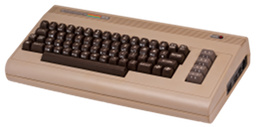 Jack Tramiel, founder of the company behind the Commodore 64, died on Sunday. He was 83 years old.
Jack Tramiel, founder of the company behind the Commodore 64, died on Sunday. He was 83 years old.
Tramiel founded Commodore as a typewriter repair business. Eventually the company began selling their own typewriters and later branched out into adding machines and then calculators. As plummeting pocket calculator prices in the 1970s put pressure on companies like Commodore who had to buy their microchips from competitors like Texas Instruments, Tramiel decided to acquire integrated circuit manufacturer MOS Technologies.
MOS Technologies also provided Commodore with a new lead engineer who convinced Tramiel to get out of the calculator business in favor of home computers and the Commodore PET was born. Lacking color graphics or sound, the PET failed to attract home buyers but was fairly popular in schools. It also led to the development of the VIC-20 and later the Commodore 64.
The low prices of these new computers propelled Commodore to the top of the microcomputer market for several years. According to data compiled by Jeremy Reimer, which doesn't include VIC-20 sales, the Commodore 64 outsold the Apple II from its second year on the market in 1983 until both models ceased production in 1993.
Read more...
Written by Rich Fiscus @ 27 Feb 2012 9:29
 If there was any question about Google planning to offer their own pay TV service, it would seem to be answered by their recent applications in Kansas City, Missouri and Kansas City, Kansas.
If there was any question about Google planning to offer their own pay TV service, it would seem to be answered by their recent applications in Kansas City, Missouri and Kansas City, Kansas.
On February 17 they filed applications in both states to offer IPTV service to customers of the broadband Internet service they are currently building in the two cities. The filings came close on the heels of US and EU regulators approving their buyout of cable set-top box manufacturer Motorola Mobility.
Late last year a report appeared indicating Google was in negotiations to secure deals with media companies for such a service. While Google remains noncommittal about the rumor, earlier this month Ars Technica uncovered another clue in the form of an FCC application suggesting plans for an antenna array to receive commercial TV broadcasts, similar to a cable television head end, at a data center in Council Bluffs, Iowa.
Read more...

 Cable television operators in the US find themselves in an increasingly difficult position with respect to Netflix streaming video. On one hand it is the chief competition for their legacy pay TV business. On the other hand it arguably the biggest driver of increasingly higher speed Internet subscriptions, accounting for around a third of US Internet traffic.
Cable television operators in the US find themselves in an increasingly difficult position with respect to Netflix streaming video. On one hand it is the chief competition for their legacy pay TV business. On the other hand it arguably the biggest driver of increasingly higher speed Internet subscriptions, accounting for around a third of US Internet traffic.

 A major focus of Windows 8 is convincing users to login using a Microsoft account (formerly Live ID) rather than a traditional local account. A Microsoft account is a sort of portal to access various cloud services including 25GB of free storage via SkyDrive which is accessible directly through various apps in the new modern UI.
A major focus of Windows 8 is convincing users to login using a Microsoft account (formerly Live ID) rather than a traditional local account. A Microsoft account is a sort of portal to access various cloud services including 25GB of free storage via SkyDrive which is accessible directly through various apps in the new modern UI.
 You are likely already aware of the World Conference on International Telecommunications (WCIT) which opened in Dubai on Monday. This two week conference is where a review of the International Telecommunications Rules established by a 1988 treaty is being conducted by representatives of the 178 International Telecommunications Union (ITU) members who are party to it.
You are likely already aware of the World Conference on International Telecommunications (WCIT) which opened in Dubai on Monday. This two week conference is where a review of the International Telecommunications Rules established by a 1988 treaty is being conducted by representatives of the 178 International Telecommunications Union (ITU) members who are party to it.
 You may not realize that Microsoft has actually been a proponent of the tablet PC for more than a decade. In fact as early as 2002 they were releasing a tablet PC version of Windows. For numerous reasons previous generations of the Windows tablet PC simply didn't work for most people. The interface wasn't particularly tablet friendly, the operating system was too power hungry, and PC hardware really wasn't suitable in a variety of ways.
You may not realize that Microsoft has actually been a proponent of the tablet PC for more than a decade. In fact as early as 2002 they were releasing a tablet PC version of Windows. For numerous reasons previous generations of the Windows tablet PC simply didn't work for most people. The interface wasn't particularly tablet friendly, the operating system was too power hungry, and PC hardware really wasn't suitable in a variety of ways.
 Microsoft is a company very much used to the market changing around them rather than the other way around. As happens so often for companies in that position, their executives didn't realize they were out of step with the market until they saw a major competitor (Apple in this case) leading the market in another direction entirely. Like most companies finding themselves in that position they immediately dedicated themselves to major changes in their product line.
Microsoft is a company very much used to the market changing around them rather than the other way around. As happens so often for companies in that position, their executives didn't realize they were out of step with the market until they saw a major competitor (Apple in this case) leading the market in another direction entirely. Like most companies finding themselves in that position they immediately dedicated themselves to major changes in their product line.
 Late last week I announced a new guide for preparing Blu-ray assets to be used in a new series of AfterDawn guides for authoring Blu-ray discs. Today I'm pleased to announce that the first of those guides is finally available.
Late last week I announced a new guide for preparing Blu-ray assets to be used in a new series of AfterDawn guides for authoring Blu-ray discs. Today I'm pleased to announce that the first of those guides is finally available.
 In last week's installment of our series on mobile devices and the companies who make them looked at Microsoft's efforts to launch an ARM-powered Windows 8 platform (Windows RT) and its synergy with Windows Phone 8. Of course those are only two pieces of the Windows 8 puzzle. The other piece, and arguably the biggest one financially, is the standard x86 version of the OS; the one officially called Windows 8.
In last week's installment of our series on mobile devices and the companies who make them looked at Microsoft's efforts to launch an ARM-powered Windows 8 platform (Windows RT) and its synergy with Windows Phone 8. Of course those are only two pieces of the Windows 8 puzzle. The other piece, and arguably the biggest one financially, is the standard x86 version of the OS; the one officially called Windows 8.
 Several months ago I contacted Valery Koval, the owner of a small software company called DVD-Logic. I was hoping to get extended access to one of his company's programs so I could write a guide for using it. Plus I really wanted an excuse to play around with it. DVD-Logic sells an entire line of very impressive Blu-ray authoring software, including two different menu creation programs. In fact one of those programs was what prompted me to get in touch with him.
Several months ago I contacted Valery Koval, the owner of a small software company called DVD-Logic. I was hoping to get extended access to one of his company's programs so I could write a guide for using it. Plus I really wanted an excuse to play around with it. DVD-Logic sells an entire line of very impressive Blu-ray authoring software, including two different menu creation programs. In fact one of those programs was what prompted me to get in touch with him.
 In the first two installments in this series examining the mobile device market we have looked at Apple and Amazon. This time around we'll be talking about a company who currently only competes in the smartphone market but whose tablets are perhaps the most anticipated product to come along since the original iPad. That company is Microsoft and obviously the tablets are the numerous models which will launch with (and following) Windows 8.
In the first two installments in this series examining the mobile device market we have looked at Apple and Amazon. This time around we'll be talking about a company who currently only competes in the smartphone market but whose tablets are perhaps the most anticipated product to come along since the original iPad. That company is Microsoft and obviously the tablets are the numerous models which will launch with (and following) Windows 8.
 In the first installment of our look at the major mobile device players we dissected Apple, who were really the first company to create a combined device/content store ecosystem. Already a growing force in the content market, last year Amazon entered the market with the Kindle Fire, a generally unimpressive piece of hardware that was mostly a BlackBerry Playbook with the serial numbers filed off.
In the first installment of our look at the major mobile device players we dissected Apple, who were really the first company to create a combined device/content store ecosystem. Already a growing force in the content market, last year Amazon entered the market with the Kindle Fire, a generally unimpressive piece of hardware that was mostly a BlackBerry Playbook with the serial numbers filed off.
 The end of the year is drawing closer, accompanied as always by the Christmas shopping season. In addition to the millions of tablets and smartphones being sold this also means a bumper crop of the latest devices from the biggest names in mobile computing.
The end of the year is drawing closer, accompanied as always by the Christmas shopping season. In addition to the millions of tablets and smartphones being sold this also means a bumper crop of the latest devices from the biggest names in mobile computing.
 When Google
When Google  Jack Tramiel, founder of the company behind the Commodore 64, died on Sunday. He was 83 years old.
Jack Tramiel, founder of the company behind the Commodore 64, died on Sunday. He was 83 years old.
 If there was any question about
If there was any question about 






